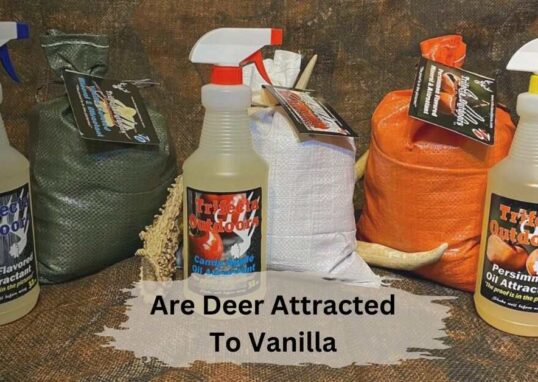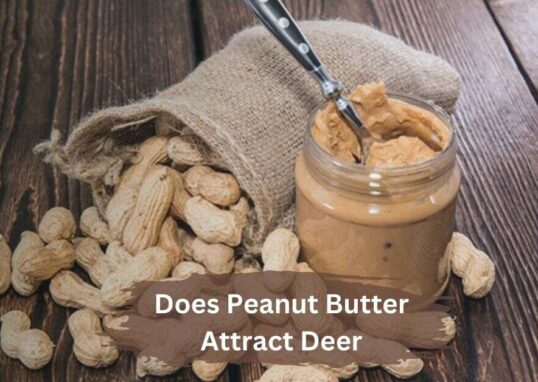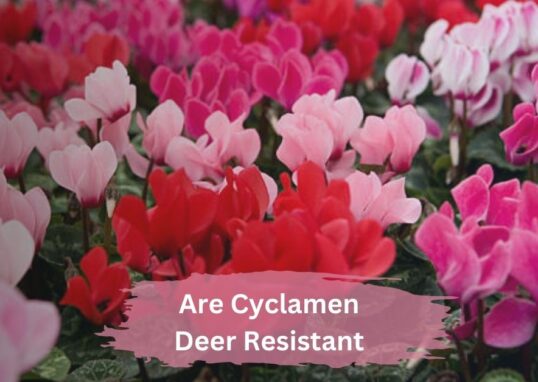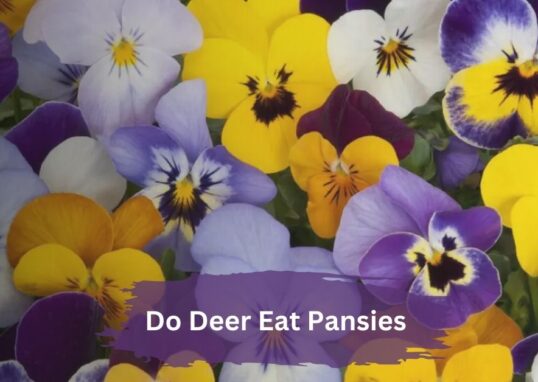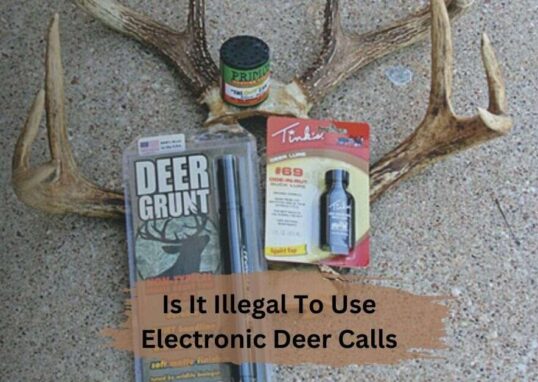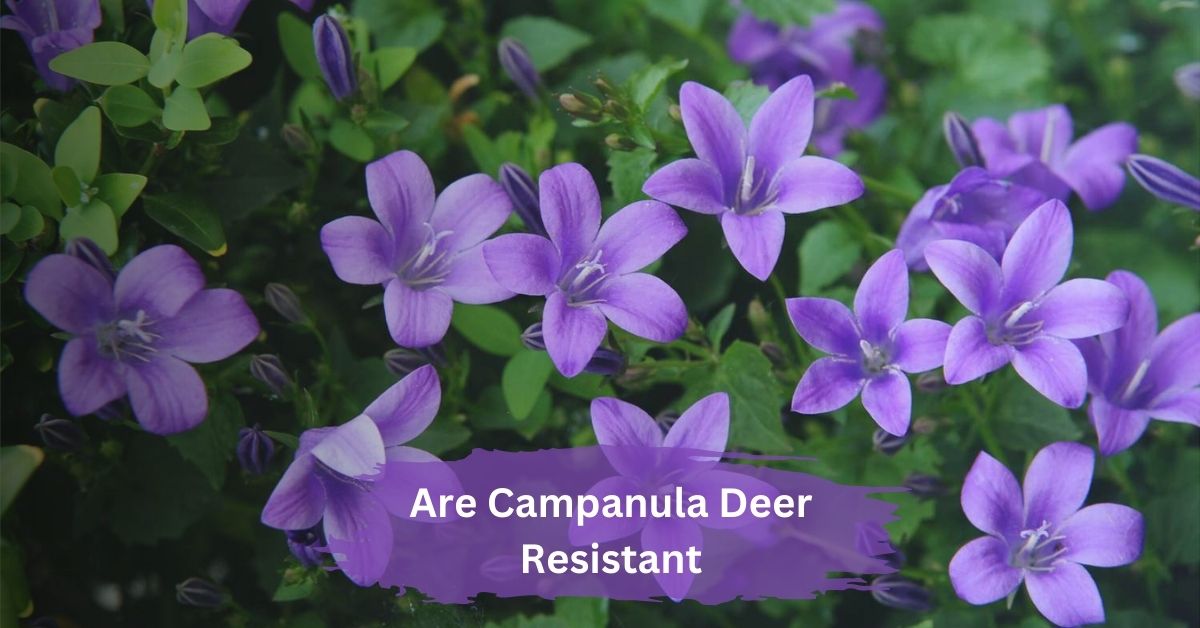
Seeing your plants damaged by bugs or eaten by big animals like deer in your garden can be frustrating! If you’re someone wondering, “Are Campanula Deer Resistant?” You are at the right place.
Yes, campanula is deer-resistant due to its bitter taste and sometimes toxic compounds. But if a deer is hungry, it will eat campanula or any other plant. However, no plant can completely avoid being eaten by deer.
I’ve figured out some deer-resistant plants for your garden that I also prefer for my garden. So start growing your garden deer-free now!
Table of Contents:
What Is Campanula? – Guide To Bellflowers!
Campanula, commonly known as bellflowers. It includes many different types of plants that can grow in various weather and soil. From small ones like Campanula portenschlagiana to big ones like Campanula lactiflora, they come in many colors and shapes.
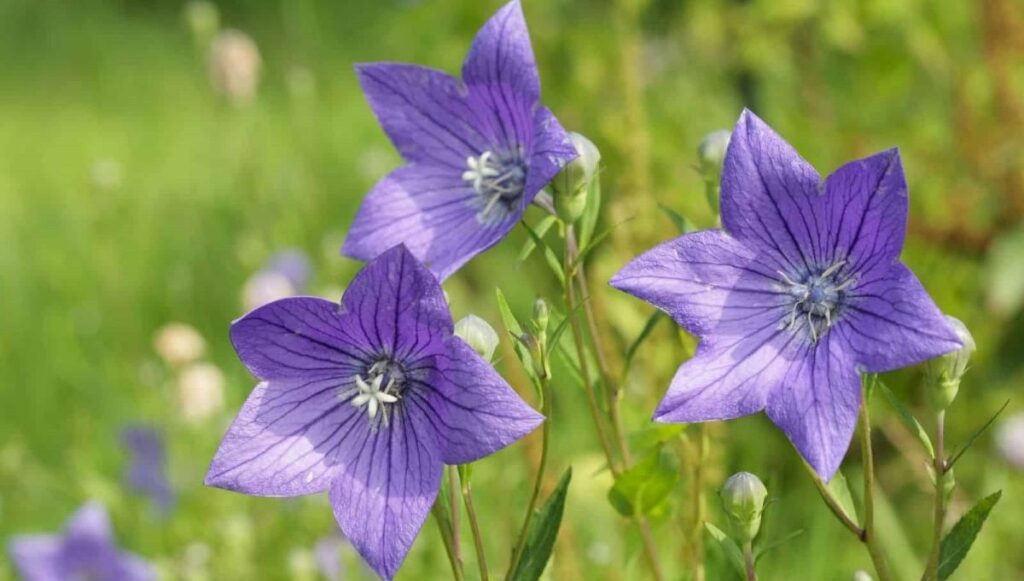
There are two types of bellflowers:
- Campanula Carpatica
- Campanula Medium
Deer don’t prefer to eat these two types of bellflower plants. However, people like to use them in gardens, borders, rock gardens, and pots because they can grow in different places.
Are Campanula Deer Resistant? – Know The Fact!
Yes, Campanula plants are generally considered to be deer-resistant. Not all plants that deer don’t like are equally safe from deer. Rutgers University’s New Jersey Agricultural Experiment Station has different levels for how much damage deer usually do to plants.
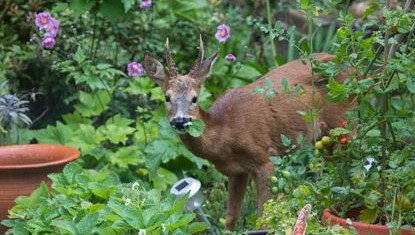
Bellflowers, like Campanula, are classified as Level C, which means deer sometimes severely damage them. Usually, deer won’t eat them if there are better food options nearby. But if they are starving, they might still munch on Campanula’s delicate leaves and flowers.
Factors Influencing Deer Resistance In Campanula – Have A Look!
- Scent and Taste: Campanula species contain chemical compounds that may warn deer due to their taste or smell. Some species produce bitter-tasting or toxic compounds, making them less appealing to deer.
- Texture: The texture of campanula foliage can influence deer browsing (whether deer want to eat them or not). Plants with hairy or fuzzy leaves may be less attractive to deer as they find them less tasty.
- Location and Environment: Geographical location plays a role in determining deer resistance. Campanula plants that grow where there are lots of deer might have developed ways to stop them from eating them.
- Companion Planting: Growing campanula with other plants that deer don’t like can hide them from deer and make it less likely that the deer will eat them.
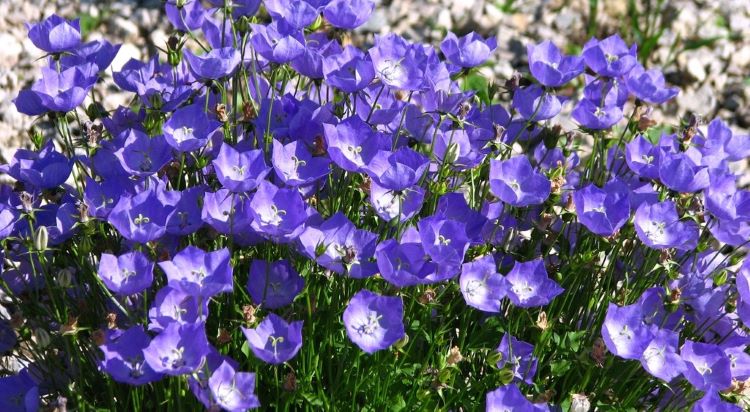
Here you go! After getting the influencing factors of campanula, there’s much to know about the deer-resistance plant that can save your garden. Check out the Reddit link if you have any further queries.
Deer And Their Feeding Habits – Must Read It!
Deer are animals commonly found in many areas, and they can be a big problem for people who garden. They mainly eat grass, leaves, and soft parts of plants. On the other hand, They also eat plants, which can mess up gardens and upset gardeners.
To deal with this, you need to know how deer act. They usually pick plants to eat based on how they taste, smell, and feel. But what they choose to eat can change depending on where they live, the time of year, and what food is available.
Top 3 Deer Resistant Plants For Your Garden – Varieties For You!
1. Bellflower (Campanula Carpatica):
It is a short plant that comes back year after year. In early summer, it grows lots of blue bell-shaped flowers on short stems that almost cover the whole plant. Many types of bellflowers smell nice, which might be why deer don’t like them much.
2. Lavender:
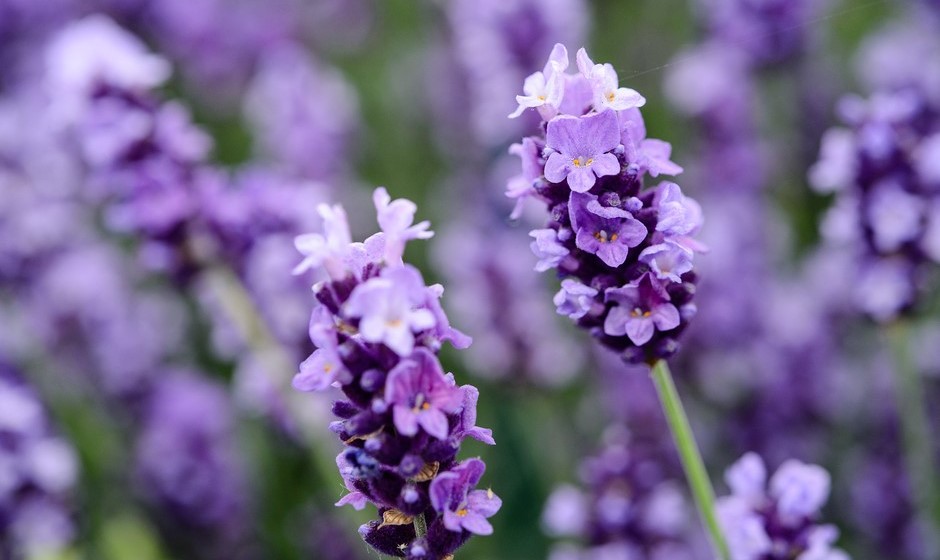
Lavender is a plant with leaves and flowers that give off a nice smell. People like it, but deer don’t. They usually leave lavender alone because they don’t like the smell.
3. Coreopsis:
This is another plant that deer browse less. Deer don’t usually eat;
- Lance-leaf coreopsis,
- Threadleaf coreopsis
So, it is even safer from deer nibbles. Coreopsis is easy to take care of because it doesn’t need a lot of water or fertilizer. If you cut off the dead flowers, more flowers will grow all summer.
Tips For Protecting Campanula From Deer – Proven Techniques!
- Fencing: Putting up fences or special nets can stop deer from reaching your campanula plants.
- Repellents: Spraying substances that deer don’t like, which you can buy or make at home, can keep them away from your campanula.
- Choosing the right plants: Picking campanula types that deer don’t usually eat can help your plants grow better in areas where there are lots of deer.
- Garden layout: Placing plants that deer don’t like next to your campanula plants can stop them from getting eaten.
Frequently Asked Questions:
1. Are Campanula deer and rabbit resistant?
Yes, Campanula plants are generally resistant to both deer and rabbits due to their bitter taste and sometimes toxic compounds, as well as textures that animals find unappealing.
2. Do deer eat black-eyed Susans?
No, because Black-eyed Susans are covered with coarse hair, which deters deer and rabbits from grazing on these perennials.
3. Are Delphinium deer resistant?
Yes, Delphiniums are generally considered deer-resistant due to their bitter taste and toxicity. However, in extreme hunger or when other food sources are scarce, deer may still nibble on Delphinium plants.
Final words:
Yes, Campanula plants are generally considered deer-resistant. However, it’s essential to recognize that no plant is entirely safe from wildlife browsing. When deer are extremely hungry, they will eat anything.
By employing the strategies I mentioned above, gardeners can make their outdoor spaces healthy so plants and animals can live together happily.

